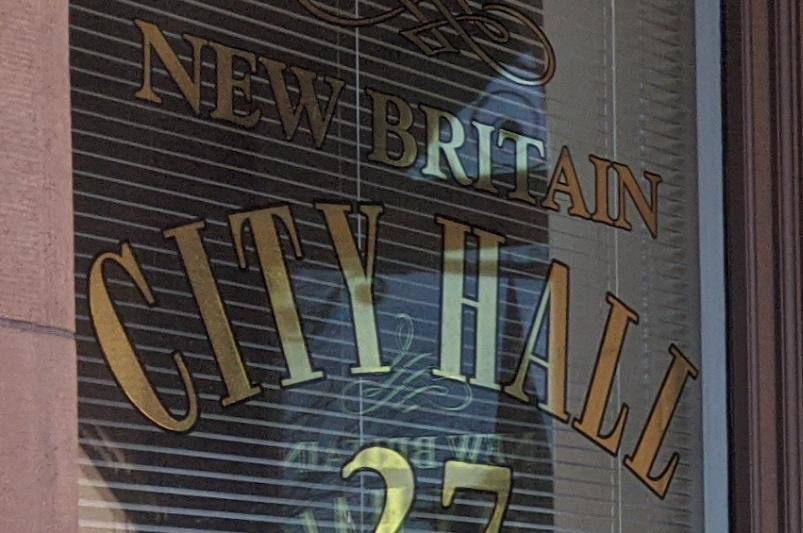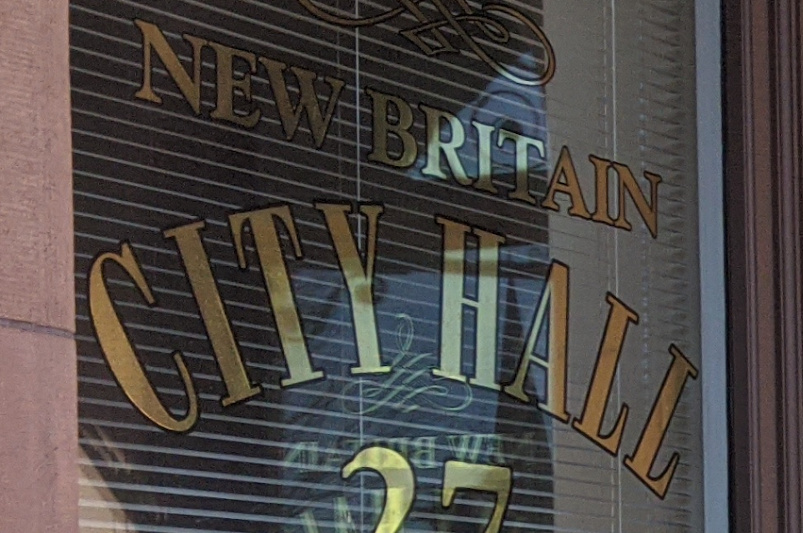City Council Republicans are proposing a Charter Revision Commission to propose changes in Council representation and other changes.

The appointing of a charter revision commission is a part of the process under state law for a municipality to change its charter. A charter is the governing document of the municipality, above all ordinances created by the Council.
Initiating a charter revision takes a two-thirds vote of the Council. Republican Mayor Erin Stewart’s Republican Council members increased to twelve out of the fifteen member Council in the 2021 city elections, well above the ten votes needed to initiate a charter revision process.
State law requires that any charter revision commission have, “not more than a bare majority of whom shall be members of any one political party.” But the Charter Revision Commission that is proposed would include two Republican-elected Council former members, former Ald. Sharon Beloin-Saavedra (R-AL) and former Ald. Daniel Salerno (R-AL), plus Republican Justin Dorsey, Chief of Staff in Stewart’s Mayor’s office, and Republicans Carmelo Rodrigues, John Buckley and Nate Amos. Neil Connors, also to be appointed, is listed as a Democrat.
Council Republicans propose that the Charter Revision Commission consider changing, “the Common Council election provisions to a ward system with a minority party representation requirement in each ward as provided in Section 9-167a of the Connecticut General Statutes.”
Under the current City Charter, the Council consists of two Council members elected from each of the city’s five neighborhood-based Council districts, called “wards”, for a total of ten Council members representing neighborhood districts. Five additional Council members are elected at-large from the whole city.
The effect of what the suggested charter change proposes is unclear. While each Council ward is presently represented by two Council members, the lowest number of members to which the minority party provisions of Section 9-167a of the Connecticut General Statutes is three.
If the proposal would have the effect of increasing the number of Council members representing each ward from two to three, applying this provision of that statute could mean that each of the five Council wards would always be represented by two Council members of one party and one of the other.
If the effect of the proposal is to increase each of five ward’s Council members to three, it is unclear if that would mean that the total Council membership would increase to twenty members or if the five current at-large Council seats would be converted to ward seats, with fifteen total Council members representing wards, and none at-large.
But, if the effect of the proposal is to decrease the number of wards, it would increase the size of each ward and decease much the neighborhood-based representation the ward Council members provide on the Council, especially if the total number of ward Council members decreased and the number of at-large Council members increased. Those kind of changes could harm the diversity of Council representation and open the city up to a discrimination lawsuit under the federal Voting Rights Act.
Section 9-167a of the Connecticut General Statutes also says that, “any person whose candidacy for election to an office is solely as the candidate of a party other than the party with which he is enrolled shall be deemed to be a member of the party of which he is such candidate.”
Another charter proposal that the Republican resolution proposes that the Charter Revision Commission take up would, “Change the Collector of Taxes and City and Town Clerk from elective positions to appointed positions.” Both of those elected positions are currently held by Republicans.
Council Republicans also propose that the Charter Revision Commission consider changing the Charter to, “Include provisions outlining the position of a Chief Administrative Officer to work in conjunction with the Mayor for the daily management of the City of New Britain.”
They also propose to, “Remove provisions related to boards and commissions that are unnecessary or no longer exist and replace them with references to existing boards and commissions.”
Once appointed, state law also allows charter revision commissions to consider any other charter changes that they choose.
Charter revision commissions are required to hold at least two public hearings, “one prior to the beginning of any substantive work,” and, “one after the draft report to the appointing authority has been completed, but not submitted, after which hearings the commission may amend such report.”
The Republican’s resolution calls for the Charter Revision Commission to submit its draft report on any proposed charter changes by June 3, 2022.
The Council would then be required to hold at least one public hearing on those recommendations. After that, the Council may make recommendations for changes to the proposals or accept the Commission’s report as final. If the Council proposes changes, the Commission considers whether to accept them and then submits its final report.
Then the Council considers the proposed Charter changes for a final up or down vote, with a majority of the total membership of the Council, eight of the fifteen, needed to approve the changes.
If the Council approves of any such Charter amendments, they then place any proposed amendments on the ballot in a referendum, at which time the city’s voters would have the chance to accept them or vote them down.
The proposed charter revision resolution is on the agenda of the January 26, 2022 Council meeting.




